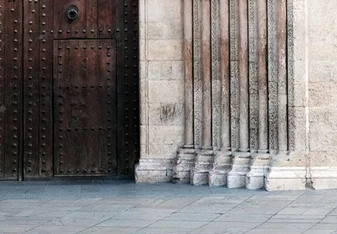Study Abroad Programs in Granada, Spain
About
Granada was once an important cultural and political center of the Islamic caliphate that ruled the south of Spain in the 10th and 11th centuries. This heritage has been preserved over the centuries in the food, streets, and architecture of the city, most notably in the stunning halls of the Alhambra palace. This has made Granada a particularly unique city in Spain.
But this is not the only thing that makes Granada interesting. The University of Granada draws a large, vibrant, and diverse student population of almost 50,000. This makes Granada an old city filled with young people. Student life here is walking centuries-old streets covered in urban street art, trips to snowy peaks and sunny beaches, languid days in the Andalusian sun and tapas hopping late into the night.
Life & Culture
Around the world, Granada is mostly famous for the Alhambra. Within Spain, it is known as one of the country’s best university towns, a city whose everyday life is fuelled by the 55,000 students that call it home.
Culture & Immersion
Andalusians are famously friendly and open to foreigners, and you will feel welcome in Granada pretty quickly. The large student population includes plenty of international students as well as people from all over Spain, so making new friends will be easy.
Perhaps your biggest challenge in talking to the locals will be the accent. Even if you speak some Spanish, the Andalusian accent is usually strong and spoken at lightning speed. But don't worry: once you get the hang of it, you’ll be dropping consonants with the best of them.
Culture Shock & Support
Spanish culture is not hugely different from what most Western students will know, but there might be small sources of culture shock. Things like differences in timekeeping (always on the late side), food (a big meal at lunch and smaller dishes for dinner), and greetings (a hug and/or two kisses on the cheek) can be jarring for newcomers, but most people get used to it relatively quickly.
Most study abroad programs offer support for their students. This can mean cultural immersion and language classes, a dedicated coordinator, or simply advice on settling in. If this is important to you, ask your prospective programs about their resources before choosing one.
Lifestyle
In what is already a particularly laid-back country, Andalucia is possibly the most laid-back of regions. Everyday life here takes place at a slower pace, possibly due to the sweltering heat. Meals are eaten late (2 or even 3 PM is normal for lunch, and dinner doesn’t usually happen until at least 10), and most businesses shut down in the afternoon for siesta.
Insider Tips on Studying Abroad in City
One of the loveliest things about Granada is its drinking culture. Here, drinks with friends are enjoyed slowly, over several hours, sitting on a warm terrace and sampling tapas. Indeed, tapas hopping is a crucial part of Andalucian culture and is designed to keep you full until dinner at 10 or 11 PM. The best tapas bars are near the cathedral, and the tapas are usually complimentary with every drink.
Don’t miss out on the opportunity to explore beyond the city. Head up into the Sierra Nevada mountains for incredible hikes and charming remote villages, or down to the Costa Tropical for the great beaches of Salobreña and Almuñecar. Other great Spanish cities like Seville and Cordoba are also very easy to reach for a weekend trip, and shouldn’t be missed.
Planning Your Trip
Different types of study abroad courses will offer different levels of support and assistance. Make sure you know exactly what you’re getting before making a choice.
Course Types
There are three main types of study abroad course: direct enrollment, direct exchange, and third-party provider. Direct enrollment means you apply directly to a university course in Granada, direct exchange means you attend a local university as part of an exchange program with your own full-time university, and a third-party provider organizes everything for you.
Each option has its pros and cons. A third-party provider offers much more support for things like housing, visas, and travel, but is usually more expensive. Direct enrollment is the most authentic (and usually cheapest) experience, but more or less leaves you to figure things out by yourself. An exchange program usually has good support and structure, but you need to go to specific partner universities.
Housing
If you study abroad with a third-party organization or an exchange program, you will usually not have to arrange your own housing. For direct enrollment students, there are various options, including university residences, private flats, and staying with a host family. The accommodation office of the University of Granada can provide some guidance.
Transportation
Most programs will require you to buy your own flights. Malaga Airport is the closest international airport to Granada.
Granada is quite a compact city and you should be able to walk to most places. There is a useful public transport system of buses and a brand-new metro for longer trips.
Costs & Funding
The average cost of a third-party study abroad program in Spain is $10,000, but many providers offer financial support (see Scholarships below). You can save a lot of money by enrolling directly, as tuition fees at the University of Granada are under $1,000 a year.
Visas
If you intend to study in Spain for more than three months, you will need a Type D Student Visa. This gives you the right to live in the country for the duration of your course. The fee is 60 EUR.
If you are using a third-party provider, they will probably take care of the visa application process on your behalf, although you will still have to provide the relevant documentation and the application fee.
Can You Work While Studying in Granada?
Yes, as long as you have a student visa, you can work a part-time job that does not interfere with your school hours. You can also work a full-time job for up to three months if it does not interfere with university (which is to say, you can get a job during summer vacation).
Scholarships
Third-party providers have several funding options for students who cannot afford to pay the full fees.
- API offers about $500,000 in study abroad scholarships, with students receiving anywhere between $250 and $1,000.
- The Center For Cross-Cultural Study offers a merit-based scholarship and a diversity scholarship for students going to Spain.
- ISA offers the Dr. Carlos Castañeda Memorial Scholarship, which provides $2,000 to students on a merit or needs-based basis.
You can find other great scholarships to apply for here.






























